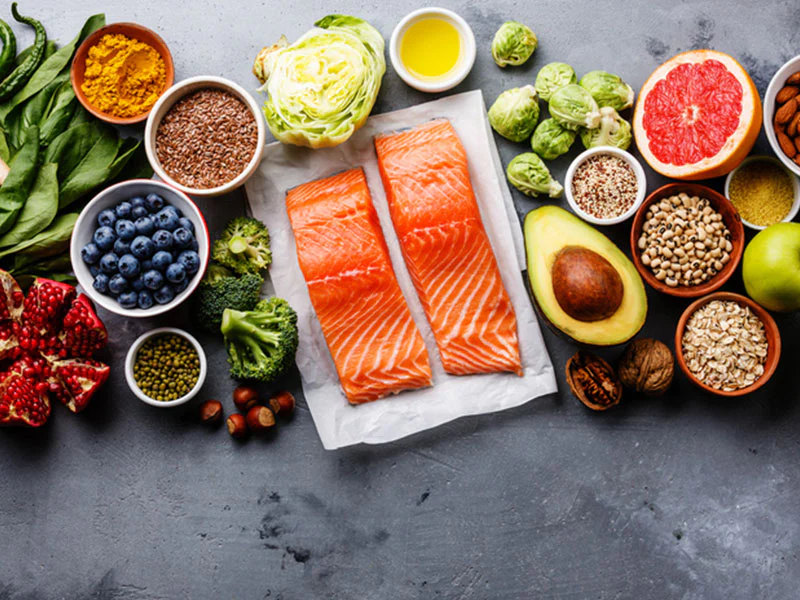Thanks to the ongoing interest in healthier lifestyles and healthier food choices, going on a whole food diet is no longer the radical dietary option it once seemed. Today, supermarkets are carrying a wider assortment of unprocessed and unrefined food because of the growing number of people swearing by the effectiveness of whole foods.
What is a whole food diet?
A whole food diet is one that consists of eating unprocessed or unrefined food including grains, nuts, seeds, fruit, and vegetables. How is it different from organic foods? Whole foods have little to no preservatives or additives. Organic food, on the other hand, is grown or raised without the use of pesticides, growth hormones, or bio-engineering.
There are many benefits that come from going on a whole food diet. Whole foods help you lose weight because they contain fewer calories than processed food. They also lower your blood sugar levels, improve your digestion, and reduce muscle pain. Aside from becoming healthier and stronger, you also feel happier and more energized.
Monitor the kinds of food you eat. Buy raw ingredients and cook them yourself. Or cultivate a small vegetable garden if you have the space. When grocery shopping, check the labels and tags to ensure that the ingredients are in line with your whole food diet.
Plant-based whole food
A plant-based whole food diet is based on vegetables, fruits, legumes, nuts, seeds, and whole grains, with little or no meat or fish. These kinds of food contain proper vitamins and nutrients such as potassium, vitamin C, and folate to nourish and keep your body healthy. Just avoid the salted or artificially flavored varieties, especially when it comes to nuts and seeds.
- Carrots
- Tomatoes
- Kale
- Squash
- Eggplant
- Apples
- Bananas
- Mangoes
- Peaches
- Lemons
- Figs
- Black beans
- Chickpeas
- Soya beans
- Lima beans
- Kidney beans
- Lentils
- Almonds
- Walnuts
- Cashew nuts
- Macadamia nuts
- Pistachios
- Sunflower seeds
- Pumpkin seeds
- Brown rice
- Quinoa
- Buckwheat
- Whole rye
- Rolled oats
- Corn
- Whole cornmeal
Variations of plant-based food
These types of food can also be part of your diet because they’re derived from whole food and are minimally processed. They still contain the fiber and nutrients that usually leach out when food is processed.
- Oatmeal
- Peanut butter
- Salsa
- Guacamole
- Hummus
- Mustard
- Corn tortillas
- Gluten-free pastas
- Soy sauce
Animal-based products
A whole food diet isn’t restricted to plant-based food only. Animal-based products contain protein and iron, which help boost the immune system, improve metabolism, and strengthen teeth and bones. Eating the following animal-based products is allowed as long as they are obtained from clean sources such as organic farms or grass-fed meats. They must also be consumed sparingly.
- Meat
- Chicken
- Eggs
- Fish
- Dairy
Alternative dairy products
If you can tolerate dairy, try to avoid cow milk and go for raw or unpasteurized dairy products instead. But you’re sensitive to dairy products, including pasteurized or homogenized cow milk, there are many alternatives to common dairy products. Just don’t forget to check the nutritional information on each product’s label to ensure that there are no additives, sugar varieties, or high fat content in the product.
- Hazelnut milk
- Coconut milk
- Almond milk
- Soy milk
- Tofu
- Nutritional yeast
- Coconut butter
Having a good nutrition plan that complements your body type and lifestyle will yield spectacular results. At WholeBody Solutions, we believe that when it comes to nutrition, there is no one-size-fits-all solution. We help you improve your well-being through a customized and precise nutrition plan based on your unique needs and condition.
To learn more about our program, check out our Nutrition page or give us a call at 617.328.6300 to get started.


 Opened more than 30-years ago by Dr. Ann Doggett, WholeBody Solutions is a holistic wellness center whose mission is to provide the community with safe, effective, and natural answers to health and wellness concerns. Our all-encompassing wellness center focuses on the following drug-free services: Nutrition, Chiropractic, Acupuncture, and Weight Loss. Our goal is quite simple – to make sick people well and to keep healthy people healthy. It’s that simple and that powerful.
Opened more than 30-years ago by Dr. Ann Doggett, WholeBody Solutions is a holistic wellness center whose mission is to provide the community with safe, effective, and natural answers to health and wellness concerns. Our all-encompassing wellness center focuses on the following drug-free services: Nutrition, Chiropractic, Acupuncture, and Weight Loss. Our goal is quite simple – to make sick people well and to keep healthy people healthy. It’s that simple and that powerful.

